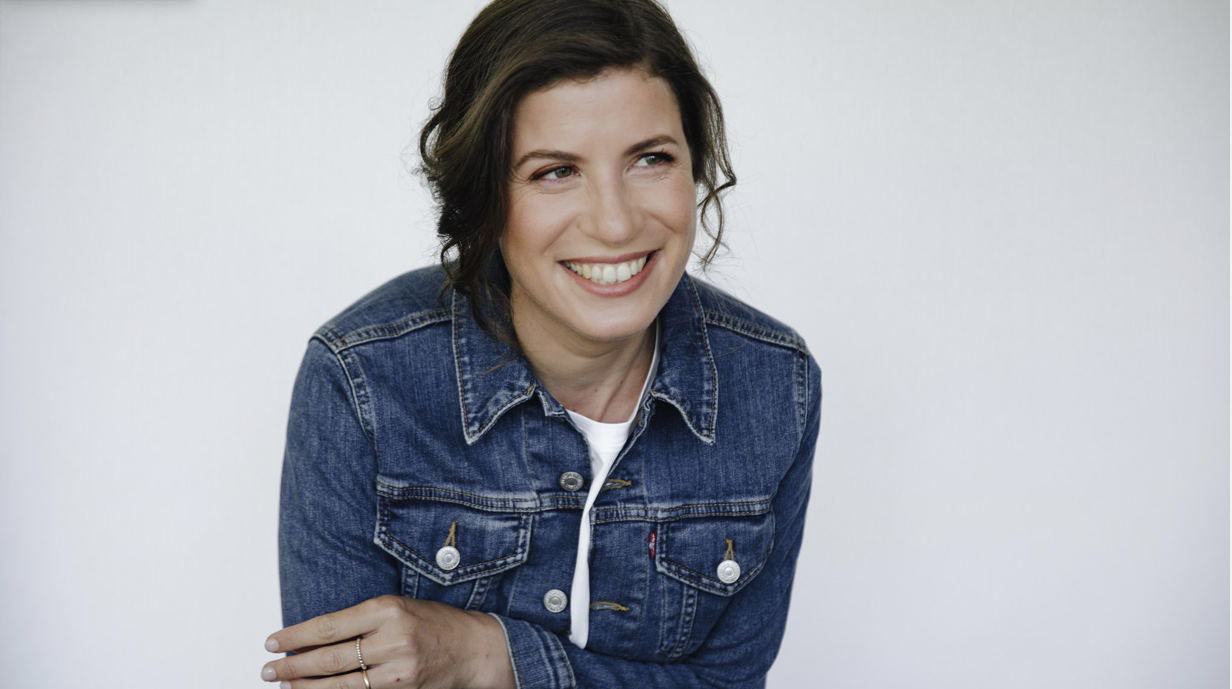Who better to capture what a country’s best wines and most important styles of wine are for the premium on-trade than an award-winning sommelier – which is what Paz Levinson hopes to offer with her new Argentina Reloaded initiative.
You might think heading up the wine operation at one of Paris’ most acclaimed three Michelin star restaurants – Anne Sophie Pic – would be a demanding enough job to keep on top of. But Paz Levinson is also determined to throw her energy, passion, wine knowledge and experience into finding a new and exciting way to showcase the best wines and producers from Argentina that she thinks the world of wine needs to know about.
Yes, Paris might be a long way from the vineyards of the Mendoza Valley, or the high lands of Salta, but Levinson says she feels as close to what is happening with the winemakers and their wines as she has ever done.
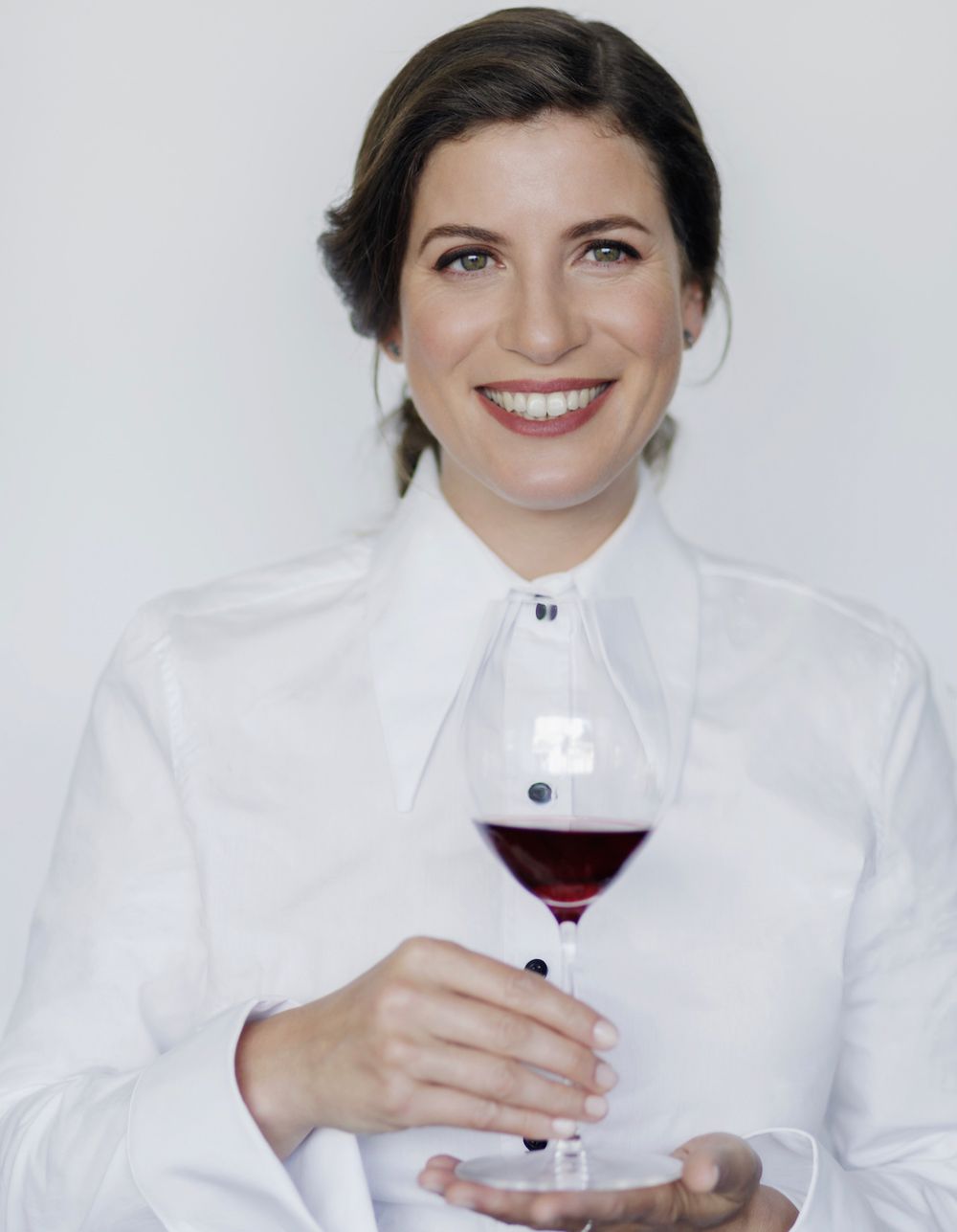
Paz Levinson is using her experience as one of the world’s leading sommeliers to celebrate the best wines that Argentina can offer
In fact, living so far from home has arguably made her even more focused on her home country and, more importantly, how she can use her profile and reputation to really celebrate and tell the stories about what is happening in the Argentinian wine scene to the international professional wine community.
That’s why she has launched, in partnership with Studio Courtois, her new Argentina Reloaded programme of events, tastings and masterclasses that will travel the world taking the best Argentinian wines, producers, and stories with her.
New perspective
The aim is to present Argentinian wine in a new exciting format that is very different to what buyers, sommeliers and the trade might have got used to at generic events and major exhibitions.
This is very much a personal Paz Levinson appreciation of Argentina. One that captures her training and knowledge as a leading professional sommelier and wine director and uses that experience to bring to life Argentinian wine in a way that is most relevant to other sommeliers working in demanding restaurants in key cities around the world.
She explains how the Reloaded programme came about: “I was worried about losing my proximity to the winemakers and what is happening in Argentina. I have always wanted to spend some of my time, like working with Wines of Argentina, to understand what Argentina is doing, It is my home and I have very good relationships there and I want to keep hold of all of that and stay close to the winemakers.”
Working in France has also given her a different perspective on Argentinian wine, particularly where it sits compared to other countries.
“Working with wines from all over the world means you see Argentina in a different light. That is what I want Argentina Reloaded to be all about. Something that is focused on the sommelier community and what they need.”
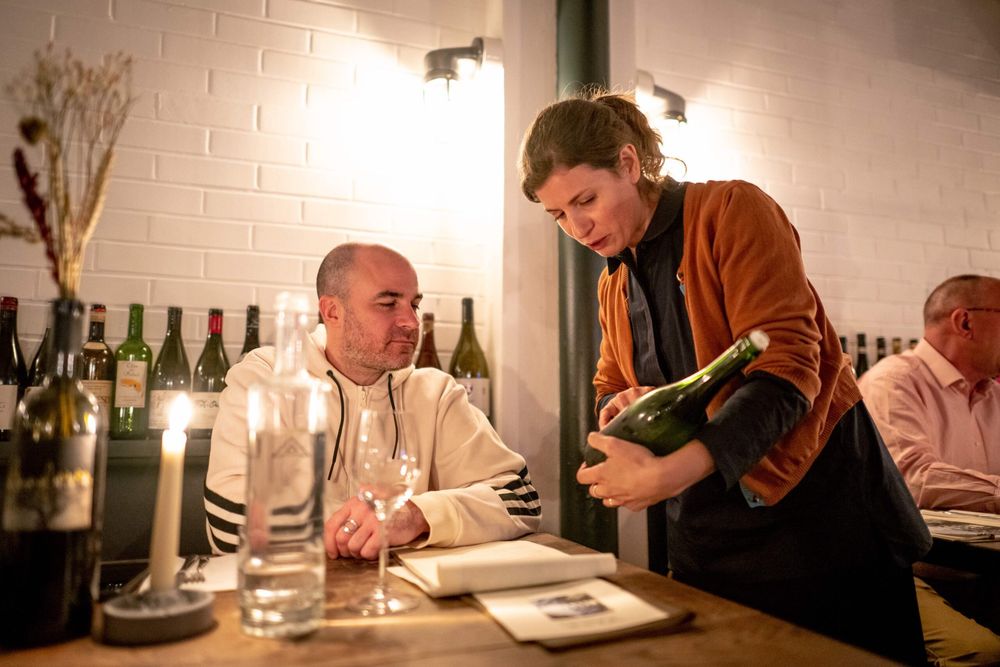
Paz Levinson wants to bring the best of Argentina to all Michelin Star wine lists around the world. Photograph: Benedict Tufnell @benedict_tufnell
It’s why she has selected what she calls “gastronomic wines” that have a “place on every Michelin star restaurant wine list”.
To do that she has identified wines from 20 Argentinian producers that she thinks best reflects all the latest trends, and winemaking styles happening across the country. They are not meant to represent every region, or winemaking area, but the wines she believes deserve a place on anyleading restaurant wine list.
Within her selection are wines from non-traditional Argentinian varieties, like Roussanne and other non-traditional white wines, to demonstrate what the country is doing, as well as exploring Torrontes and the great food pairings it can offer – even in a three star Michelin restaurant.
Then there are orange and skin contact wines, and a series of lighter, but complex red wines – including wines featuring Bastardo, Garnacha and Pinot Noir – that really challenge people’s perceptions of Argentina as being all about Malbec.
That said she has also some Malbecs to show the progression that is taking place in different regions, particularly in higher altitude styles like in Altamira in the southern Uco Valley. The session also looks at the role of old vines and their influence on the wines they are making and how producers are looking to bring back indigenous varieties – like Bastardo – and the opportunities that might bring.
“I want to stop Argentinian wine being pigeon holed and only being sold in Argentinian or steak restaurants. You don’t have that with German or Italian wines.”
She says she has not really focused too much on price as she wants to pick the best of the best, but most are around £15 to £20 and then a bit more.
In order to be fair as possible she chose the producers through a series of blind tastings and from the experience she has gained taking part in judging wines at the Decanter Awards and analysing menus as part of the Star Wine List competition.
To get down to her final 20 also included visits to Argentina to go out and meet the producers for herself.
She was then able to sit down with the winemakers to go through the wines and what they mean to them. “I wanted to choose wines based both on their quality, but also the philosophy of each project. For each of the wines there is a reason why I was attracted to it. It’s not just about the wine, there has to be something else behind it, which makes it good to talk to people about. We also want to work with the people behind these wines. I like to talk about what is happening in the vineyards. I like to give the full picture.”
Big opportunities
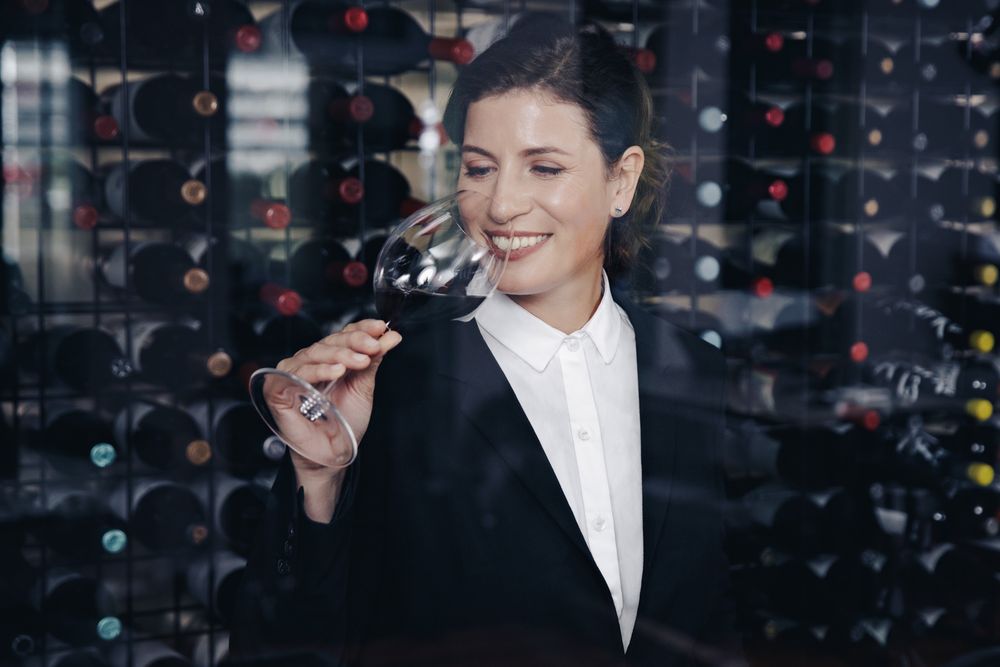
Paz Levinson says she wants to celebrate and bring to life the diversity of winemaking taking place in Argentina
Levinson says what is clear from her research into Argentinian wine is how many more opportunities there are now to make wine in Argentina. “You don’t need to be a big winery to make wine. There is now so much more diversity and far more smaller projects going on. That is the big change I have seen. There is a new generation of winemakers coming though that are challenging the way wine is made and showing it in their own small projects.”
She says it is also clear how much influence they have now picked up by travelling the world and doing vintages in both the northern and southern hemispheres. “By doing harvests in Europe it gives them a different perspective on Argentina wine. They are bringing those influences back to Argentina with them. This stared about 15 years ago, but is now really having an impact. People are going to places like Galicia and not just Burgundy and Bordeaux.”
Experiences the winemakers are also sharing with each other to help the country as a whole make better wines. It’s why the Reloaded programme will also include producer and winemaker visits from Argentina to regions in Europe so that they can share that learning process together.
“We want to be part of that and help. It is super important for the country as a whole. We are looking to organise two trips to Europe – one to Burgundy and one to Piemonte. That is what I love about Argentina Reloaded is the discussions we can all have together and how we can all talk about the future and what we can do together.”
She has taken a lot of inspiration from the winemaker movements there have been in other countries, like South Africa with the Swartland Revolution, or in Portugal and the Douro Valley with the Douro Boys.
“We want to capture that idea of coming together and doing something together.”
Sommelier focused
The plan is to take her Reloaded programme to key cities around the world, giving the best sommeliers, importers, critics and journalists the chance to experience these wines for themselves. With three wines selected from the producers to take part in an initial open tasting, followed by a more formal tasting of around 17 to 20 wines as part of the main masterclass.
She says she has designed the Reloaded masterclass to make sure they are as useful as possible to the sommeliers attending.
“When I go to a tasting I want to learn and I want to learn fast. If I can get to see up to 20 wines then I feel I am seeing a big enough sample in order to really understand the country and what it is doing,” she says.
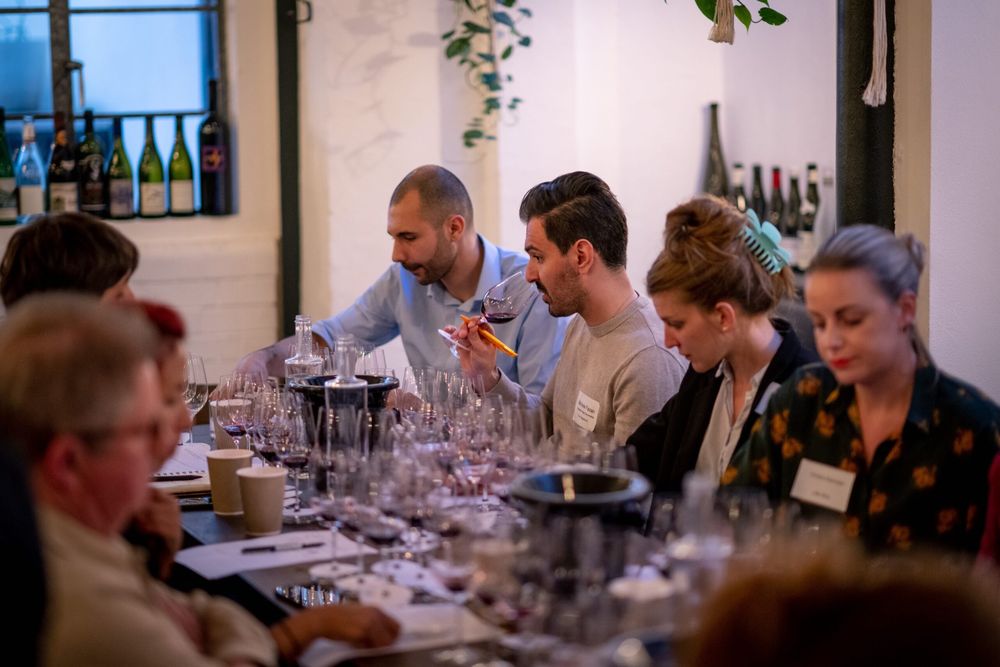
Paz Levinson hosted the first post pandemic Argentina Reloaded event in London earlier in the summer. Photograph: Benedict Tufnell @benedict_tufnell
She actually started the idea of Reloaded at a tasting in Lima in Peru before the pandemic and the great response she got from that gave her the confidence to develop the programme during lockdown.
She started her first official Reloaded event at an exclusive masterclass at Fare restaurant in London in June and is due to hold a similar event in London in September and then later in 2022 will be travelling to Beaune, Burgundy, Copenhagen, Oslo and Stockholm. Before switching her attention in 2023 to Asia and North America before a homecoming in Argentina later next year.
Levinson hopes the sessions can also be an opportunity for sommeliers, importers and the trade to come together and share ideas.
“Sommeliers are travelling the world and seeing different countries and can share those experiences as well.”
Another key focus of the Reloaded programme is sustainability and all the producers involved in the event have their own sustainability strategy and agenda and are able to share those stories too.
“It is a real priority and focus on what we are doing with Reloaded,” she says. “The new generation of winemakers are very sensible about this and understand why it is so important in the international markets.”
To help bring the programme tougher Levinson has been able to get some government and tourism funding in Argentina and also relies on the producers for some support too and is hopeful she can attract other investment as the programme grows.
She also wants to shine the light on female-driven wine projects and female winemakers. “We have more and more now involved,” she says.
Challenges and opportunities
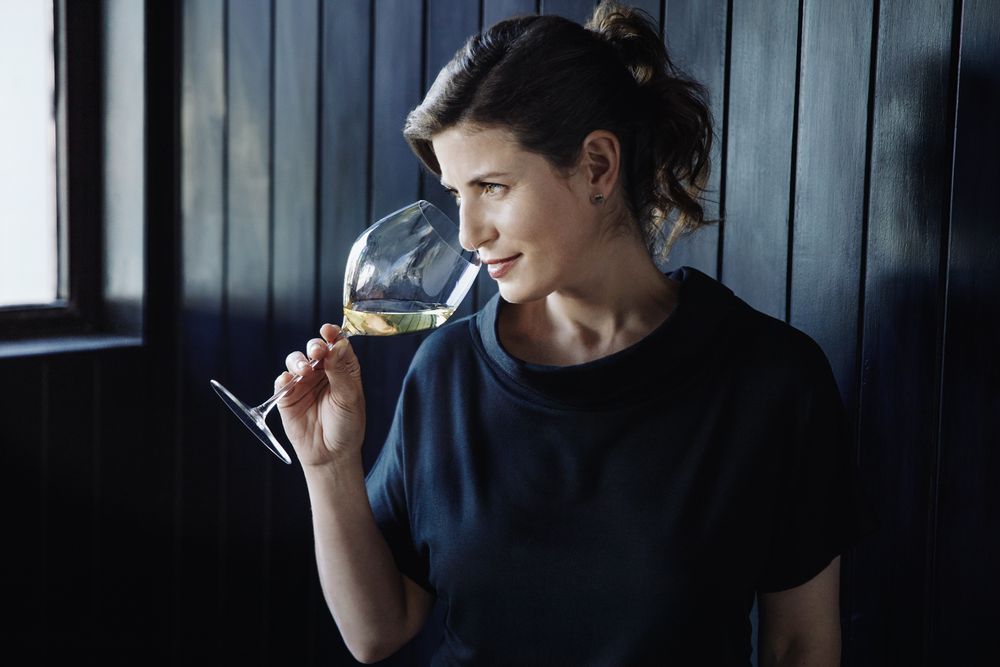
Paz Levinson has looked to introduce Argentinian wine where she can into the Anne Sophie Pic Michelin-starred group of restaurants.
When she is not working on Argentina Reloaded she has her demanding day job to worry about which actually goes much further than covering the wine list at the 3 Michelin Star Anne Sophie Pic restaurant, but across the entire group which includes 10 Michelin-starred restaurants.
She says: “The group has many restaurants, and 10 Michelin stars all together. As the wine director I am responsible for managing the sommelier teams and the wine lists in all the restaurants. I also look after non alcoholic drinks as well.”
The group does carry a good range of Argentina wines on its various lists, but as Levinson is not on the restaurant floor explaining the wines in person, it is important the rest of her sommelier team believe in and support the Argentinian wines they have, she says. They are particularly good for food pairings on its tasting menus, she adds.
“We do lots of tastings together and I can teach them about the wines so they have the same passion for them that I do. It is better for me that it is a French person selling an Argentinian wine in the restaurant and not me.”
She adds: “But if I can sell Argentinian wine in top restaurants in France, I can sell it anywhere.”
- To find our more about Argentina Reloaded then go to its website here.
